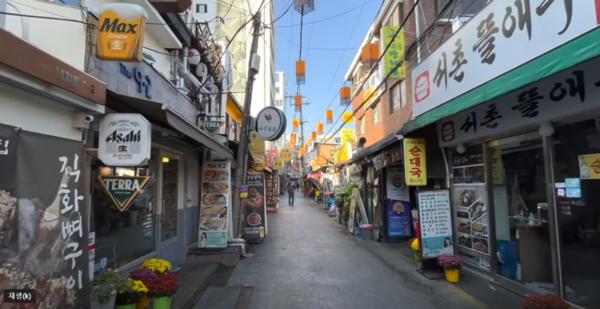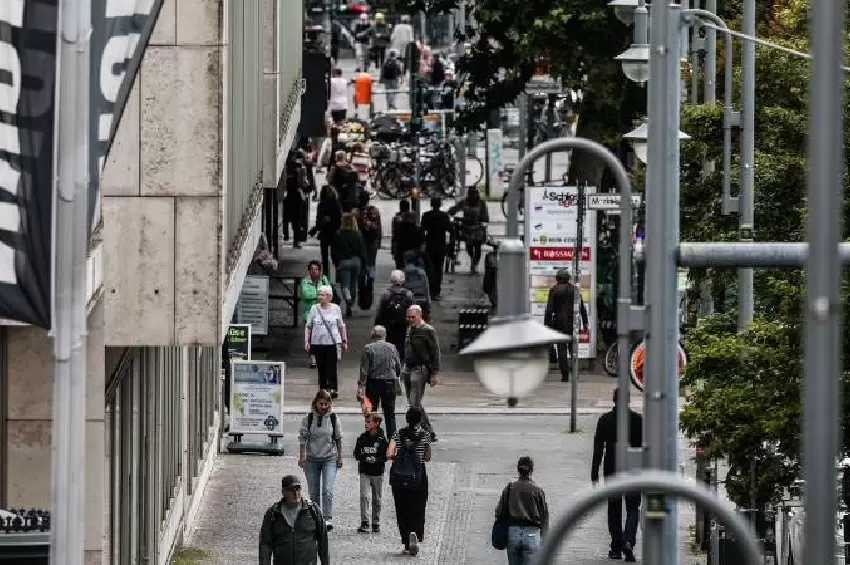Sejong Village Food Street in Jung-gu, Seoul, stands desolate amidst the aftermath of martial law.

The declaration of martial law has led to a significant deterioration in consumer sentiment in December, marking its steepest decline since the global financial crisis. According to the 'December Consumer Sentiment Survey' released by the Bank of Korea (BOK) on December 24, the Composite Consumer Sentiment Index (CCSI) for December plummeted to 88.4, a 12.3-point drop from the previous month. This marks the largest drop since October 2008, when it fell by 12.6 points during the global financial crisis.
The CCSI, derived from six key indices that constitute the Consumer Sentiment Index (CSI), serves as a psychological indicator. A reading above 100 indicates optimism about consumer sentiment, while a reading below 100 reflects pessimism. Specifically, the economic outlook sentiment has worsened significantly. The Current Economic Assessment CSI for December dropped by 18 points to 52, the largest decline since March 2020. The Future Economic Outlook CSI also fell by 18 points to 56, marking the steepest decline since July 2022. The Household Income Outlook Index dropped by six points, from 100 to 94, reflecting expectations of reduced income.
The Housing Price Outlook Index for December stood at 103, down six points from 109 in November, attributed to a slowdown in the rise of apartment prices and decreased apartment transactions in Seoul. Despite consecutive benchmark interest rate cuts, the Interest Rate Outlook Index rose by five points from 93 in November to 98 in December, influenced by rising loan rates due to tightened household debt management.
Hwang Hee-jin, a senior official at the BOK's statistics research team, analyzed the situation, stating, "In November, concerns about our exports slowing and the economy weakening increased following the U.S. presidential election results, which hinted at stronger protectionist policies. These concerns led to a one-point drop. The combined impact of domestic political turmoil has resulted in a more significant decline this month." Hwang also pointed out, "Since over 90 percent of respondents answered the survey by December 13, the effects of the passage of the second impeachment bill were not fully reflected, but uncertainty remains a significant factor."
The expected inflation rate, which reflects the outlook for inflation over the next year, stood at 2.9 percent, up by 0.1 percentage point from the previous month. Although the consumer price inflation rate remained in the 1 percent range, the sharp rise in the won-dollar exchange rate and concerns over increases in public utility fees pushed the inflation outlook higher. The expected inflation rate for three years later rose by 0.1 percentage points to 2.7 percent, while the five-year outlook remained unchanged at 2.6 percent.









Comments